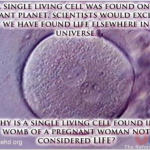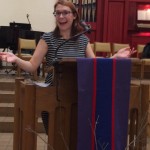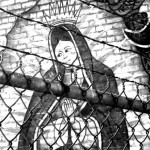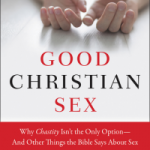A few years ago, I was in what I am starting to admit to myself was an abusive church relationship. I can’t really go into all the ways that this church relationship reminded me of the one abusive romantic relationship I was in. There are too many and I haven’t taken enough time to reflect on those yet. But here’s some examples:
- The pastor dictated how we were to think and live. I’m not just talking, “Be nice and love each other!” I’m talking, once when Myspace was “the thing” (yeah, I know…Myspace) and everyone in youth group had one, the pastor preached a sermon saying Myspace was “from the pits of hell.” By the next day, my sister and I (ever the rebellious ones) were two of the few teens in the church who still had a Myspace page.
- Our youth pastor liked to force everyone in youth group into uncomfortable levels of emotional intimacy with one another. He encouraged teens strongly to “share their testimonies,” which to him meant, “Get up in front of the entire youth group and reveal the deepest, most painful parts of your history.” He would plan fun sounding youth activities, and when we went to them, he’d gather us in a group and tell us we couldn’t leave until all the “drama” in the youth group was solved. Then, anyone who had a problem with anyone else would be forced to reveal it in front of the entire youth group. Everyone knew everyone’s secrets and there was no room for privacy or personal space.
- Criticizing the pastor was a no-no. When the pastor heard about criticisms of him or his policies, he would preach against them in his sermons, reminding everyone that we was God’s anointed. Church deacons (the people who are supposed to keep the pastor in check) would preach the same in Sunday School classes. God anointed the pastor, therefore what he said was right and we had to trust him or we weren’t trusting God.
- Thinking for yourself in general was discouraged too. The pastor mocked anyone who had different opinions on theology, science, or just life in general, using ableist slurs to describe them. We were strongly discouraged from having people in our lives who could challenge that view point. Don’t go to a secular college, and if you have to, watch out for those [ableist slur] liberal professors. Don’t have any “unsaved” friends because they’ll drag you down (“unsaved” includes Catholics, Presbyterians, and even people from the Church of Christ).
- Life should revolve around the church. Teens (adults too, actually) who got jobs working Sunday nights were told to quit them. A job that required you to miss even one of the church’s three weekly services was taking you away from God. Teens who had after-school activities during the week–such as jazz band or sports–were told to quit them if it made them miss the Wednesday night service. Every service, everyone extra activity, every revival meeting…we were supposed to be there.
Like the abusive relationship I was in in high school, my last real “church relationship” was filled with forced intimacy, unhealthy dependency, isolation from others. My last church relationship set me up to think I could not live without it. It set me up to hate myself and mistrust myself and to think that I could never do anything on my own. It consumed nearly all of my time and energy.
I remember when I started dating again after my abusive relationship. I was afraid and mistrustful. I was defensive and paranoid. I was sure that my partners were cheating on me or trying to control me or hurt me. Even when I met my now-husband, years after escaping that abusive relationship, I was still like this. I knew he wasn’t abusive (none of the people I dated after my first boyfriend were), but for the first few months of our relationship, I couldn’t help but be overly cautious.
Two years ago, I stopped going to my abusive church. Since I was still pretty evangelical at the time, I thought I had to find a new church right away. I had the same problem here that I did when I started dating after breaking up with my abuser. I was bitter and afraid and couldn’t trust anyone. One questionable line in a sermon or worship song and I’d be panicky and never go back.
Abe was looking for a church at the time too. I’m sure he remembers us leaving church service together and me immediately scrutinizing and ripping apart everything that happened in the sermon. Sometimes a church service leave me so panicked and drained that I’d break down in tears the second I left. It wasn’t that the churches I was going to were bad–in fact most of them were wonderful. But I just couldn’t shake my past church experience.
I went through a lot of stages in those two years. I swore off church completely. I gave up on Christianity. I decided I didn’t believe in God. I decided I was a Unitarian Universalist. I started reading feminist theology. I decided that, well, when you put it that way, Christianity might not be so bad. I found God again, though she looks a lot different now.
And somewhere in all that mess, I found a church that I love.
For awhile I was going only once every other month or so, but since I got married, Abe and I have been going nearly every week. I’m even on the list for helping out in the church nursery.
It’s weird.
This is the first time I’ve felt “a part” of a church since I left my abusive one. It’s a happy feeling. And it’s a scary, vulnerable, oh-my-god-I’m-TOO-happy-which-means-something’s-going-to-go-wrong feeling. But that’s normal, I think.
Fundamentalism stole a lot from me. But now I can say that I’m pretty sure my faith survived. It was touch and go there for awhile. I thought I’d lost it a few times. It’s a paranoid, angry, bitter, faith with some serious trust issues. But it’s healing and rebuilding. It’s learning to criticize and set boundaries and think for itself.
I don’t know where things go from here. We’ll see.











